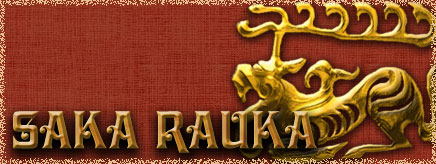
Originally Posted by
Titus Marcellus Scato

The Greeks, and Iberians, and Gauls, and Britons, and probably many others, all enjoyed the primary benefit of being conquered by Rome - being forcibly prevented from constantly fighting their immediate neighbours in endless territorial squabbles, which is how they passed their time until Rome conquered them.
As a modern-day Briton myself, I think I'd rather live as a subservient vassal of Rome, than 'enjoy' the 'freedom' and 'honour' of having my head hacked off by a big brute from the neighbouring tribe, which would have been my likely fate absent Roman law.
With that in mind, I don't subscribe to the revisionist theory that Roman rule was bad for the inhabitants of the Empire. It was better than the alternative.




 " -alBernameg
" -alBernameg
 Reply With Quote
Reply With Quote






Bookmarks